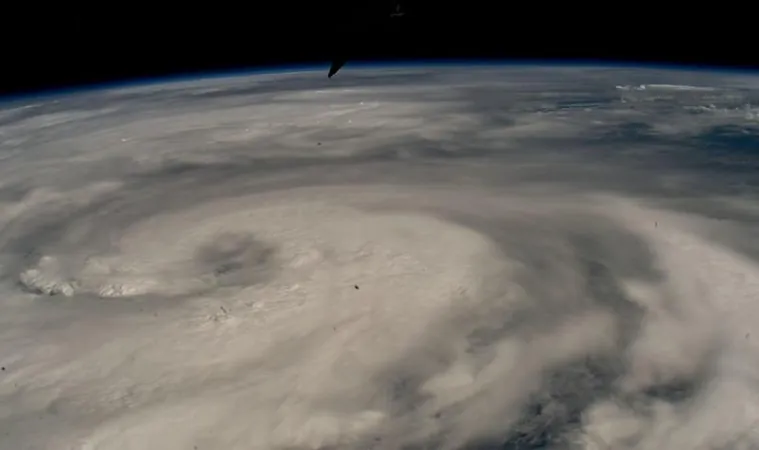
Alarming Discovery: Georgia's Melioidosis Cases Linked to Local Source!
2025-08-21
Author: Siti
Georgia's Mysterious Melioidosis Cases Revealed
A groundbreaking study published in *Emerging Infectious Diseases* has unveiled shocking evidence suggesting that a rare bacterial infection, typically associated with travels to tropical regions, may have domestic origins right here in the United States — particularly linked to hurricanes.
Researchers have identified four closely-tied cases of melioidosis in Georgia over the span of four decades. This infection, caused by the bacterium *Burkholderia pseudomallei*, is known for its rarity in the U.S., with only about 12 cases reported annually, usually among travelers who have visited regions like Southeast Asia, Australia, and Central America.
Recent Cases Raise Questions
The study highlights two patients diagnosed in September 2024, just after Hurricane Helene struck. Remarkably, neither individual had traveled abroad recently, and they both worked at the same site where they were exposed to mud, dust, and heavy rainfall. Following their hospitalization and treatment with antibiotics, both patients were released — a fortunate outcome considering the infection's 10% to 50% fatality rate.
Is History Repeating Itself?
The researchers conducted whole-genome sequencing to analyze the patients' bacterial isolates. Disturbingly, they found that the bacterial strains were closely related to isolates from two U.S. military members in Georgia who had died from melioidosis in the 1980s, coinciding with Hurricane Hugo’s impact. Both deceased military personnel lived in the same Georgia county as the recent patients, raising the specter of a long-standing local environmental issue.
Environmental Factors at Play
The study indicates that hurricanes may play a significant role in the infection's emergence. Historical patterns reveal that melioidosis cases often surge during rainy seasons and following severe weather events in endemic regions.
Experts emphasize the necessity of isolating this bacterium from the local environment to discern whether it's endemic and assess health risks accordingly. They urge healthcare providers to stay vigilant about melioidosis, especially following hurricanes, as exposure to floodwaters and debris could lead to more cases.
What This Means for Public Health
The implications of these findings could revolutionize our understanding of melioidosis in the U.S. The need for heightened awareness and preparedness is critical as climate change increases the frequency of such severe weather events. As America braces for future hurricanes, knowing the risks posed by local sources of infections like melioidosis could save lives.


 Brasil (PT)
Brasil (PT)
 Canada (EN)
Canada (EN)
 Chile (ES)
Chile (ES)
 Česko (CS)
Česko (CS)
 대한민국 (KO)
대한민국 (KO)
 España (ES)
España (ES)
 France (FR)
France (FR)
 Hong Kong (EN)
Hong Kong (EN)
 Italia (IT)
Italia (IT)
 日本 (JA)
日本 (JA)
 Magyarország (HU)
Magyarország (HU)
 Norge (NO)
Norge (NO)
 Polska (PL)
Polska (PL)
 Schweiz (DE)
Schweiz (DE)
 Singapore (EN)
Singapore (EN)
 Sverige (SV)
Sverige (SV)
 Suomi (FI)
Suomi (FI)
 Türkiye (TR)
Türkiye (TR)
 الإمارات العربية المتحدة (AR)
الإمارات العربية المتحدة (AR)